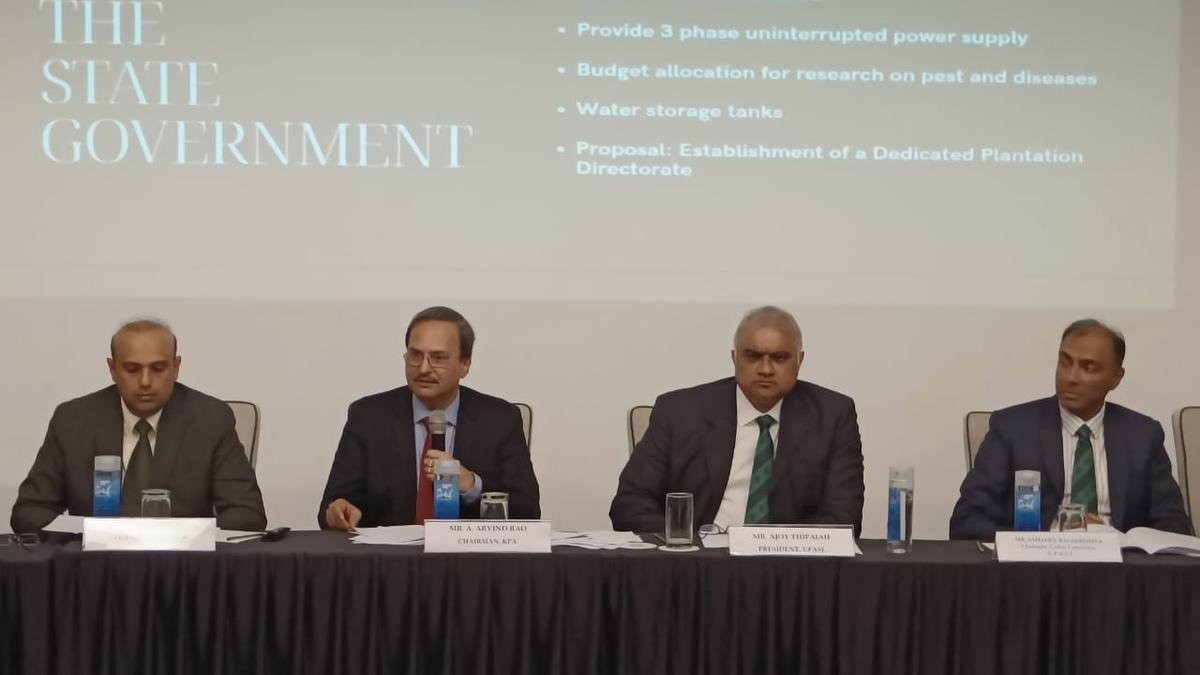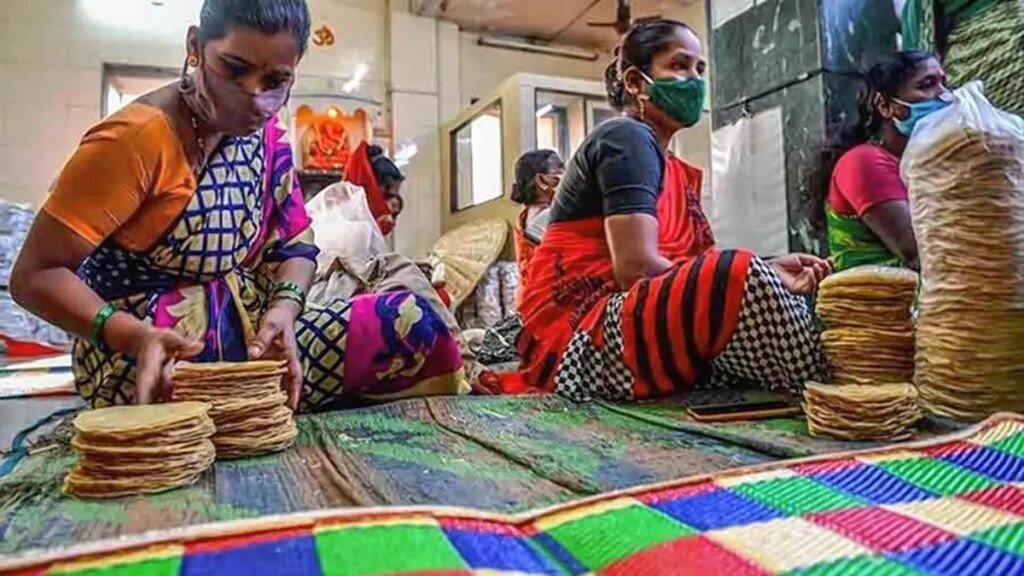Growers see marginal rise in India’s coffee output at 3.73 lakh tonnes, impacted by moisture stress


(L-R) M Salman Baseer, vice chairman, KPA, A Aravind Rao, chairman, KPA, Ajoy Thipaiah, President UPASI and Sahadev Balakrishna, Chairman, UPASI Coffee Committee addressing press meet ahead of the 67th AGM of KPA in Chikmagalur on Monday.
| Photo Credit:
Vishwanath Kulkarni
India’s coffee output for the crop year 2025-26 starting October is likely to rise by around 3 per cent over 3.63 lakh tonnes (lt) estimated in 2024-25, growers said.
The Coffee Board in its initial or post blossom estimates has pegged the output at a record high of 4.03 lt, which the growers feel is on the higher side as excess rain in the recent months has impacted the production.
The coffee season had seen a good start with widespread blossom showers early during the year. However, prolonged monsoon this year, starting early in May till early October, has impacted the crop in some of the key growing areas such as Karnataka and Kerala resulting in moisture stress, hurting the prospects.
“We expect the overall output to increase by around 10,000 tonnes to over 3.73 lt. Arabica output may range between 1-1.10 lt, while robusta production is likely to be between 2.6-2.7 lt,” said Sahadev Balakrishna, Chairman, UPASI Coffee Committee. India produced 1.057 lt of arabicas and 2.578 lt of robustas during 2024-25 totalling 3.63 lt, as per Coffee Board final estimate for the year.
Climate change
Moisture stress triggered by prolonged rainfall has impacted the production this year, said A Aravind Rao, Chairman, Karnataka Planters Association (KPA), addressing the media ahead of the 67th annual conference of the growers body. “Rising instances of climate change coupled with growing man animal conflicts, in addition to the aggravating labour shortage have emerged as major challenge for the planters fraternity,” he said.
“The impact of the climate change on the plantation industry in Karnataka is significant and serious. Global warming with unpredictable rainfall causing extreme drought, landslides and soil erosion— which is damaging crops, depleting soil and plant health, affecting plant survival and reducing crop yields— is a threat to long-term sustainability of coffee estates,” Rao said.
Karnataka is the largest producer of coffee accounting for around 70 per cent of the country’s output.
“The need of the hour is for our plants to survive and yield in plantations, to reverse the steady crop decline and the increasing number of plants being lost. The thrust in R&D needs to be urgently develop new plant varieties,” Rao said.
Insurance cover
Further, the KPA chairman said the lack of any insurance cover has compounded the challenges for the coffee growers. “At present, there is no insurance scheme available for coffee like other horticulture or agriculture crops. We urgently need a rainfall-based insurance scheme to ensure that the crop loss due to the extreme weather is compensated to the farmers,” he said. KPA has made a representation to the Commerce and Industry Ministry to include coffee and tea under the Prime Minister Fasal Bima Yojana (PMFBY).
KPA has also submitted representations to the Finance Ministry seeking tax exemptions or deductions for investments related to the development, sustainable practices and infrastructure developments and exclude plantations from CIBIL as plantations are agriculture in nature, he said.
Man-animal conflict
Rao also said that the increasing incidence of man-animal conflict, particularly involving elephants in Kodagu, Hassan and Chikmagalur is a pressing humanitarian and economic issue. “We request the government to consider increasing the allocation of funds for the construction of the railway track fences along the forest boundaries and support research and implentation of non-lethal methods like electric fencing, solar fencing and early warning systems,” Rao said.
(The writer is in Chikmagalur at the invitation of KPA)
Published on November 17, 2025



